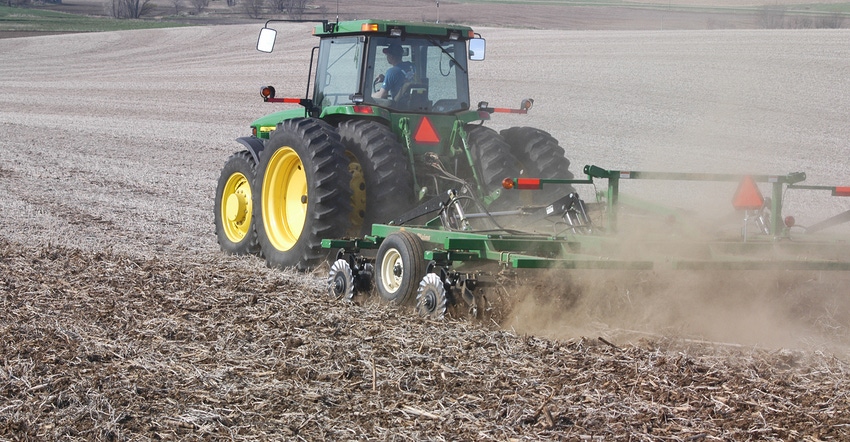May 10, 2019

South Dakota State University researchers are looking for farmers in eastern South Dakota who do conventional tillage.
SDSU is studying the connect between yield variability and soil health.
“Our hypothesis is larger numbers of [soil] microbes present lead to decreased fluctuation in yields, even if the weather isn’t 100% ideal for production year to year,” says Heather Gessner, SDSU Extension livestock business management field specialist.
“Ideally, if the hypothesis is found to be true, and there is a measurable difference in yield fluctuations, the information could be used by producers to make business decisions” Gessner says. “For example, when it comes to crop insurance coverage levels, if limited variation in yields occurs due to soil health levels, the producer may reduce coverage levels, thus reducing per acre premiums, due to the reduced change of yield losses. The yield losses are tied to the per acre revenue covered.”
Or, based on soil microbe counts, producers could evaluate soil nutrient levels and work to improve levels if needed. “Improvement may be accomplished by many means,” Gessner says. “Evaluation of the costs to make adjustments would ensure the operation makes the best decision for them.”
South Dakota farmers are encouraged to participate in the SDSU Extension Soil Resiliency and Crop Insurance Project developed to determine the correlation between yield variation and soil microbial numbers.
“South Dakota weather is full of variables,” Gessner says. “We are looking at soil microbial counts as an indicator of soil health and correlating that to yields. The idea that you can’t change what you don’t measure motivates this study.”
If you are interested in participating, contact Gessner at [email protected] or 605-782-3290.
Source: SDSU, which is solely responsible for the information provided and is wholly owned by the source. Informa Business Media and all its subsidiaries are not responsible for any of the content contained in this information asset.
You May Also Like




